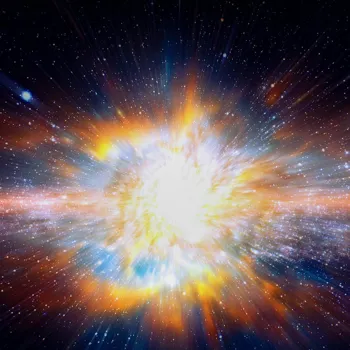Unveiling the Cosmic Silence: Decoding the Fermi Paradox. Where are the aliens? Explore the baffling mystery!
Is Anybody Out There, Yaar? Decoding the Fermi Paradox and the Cosmic Silence

Vast universe,
potential for life, yet silence - Fermi Paradox
We gaze up at the night sky, a blanket of twinkling stars stretching out seemingly forever. Each star, a sun like our own, potentially orbited by planets. And on those planets, the possibility, however slim, of life.

But if the universe is so vast, so old, and so full of potential homes for life, then where is everyone? This question, haunting and profound, is at the heart of the Fermi Paradox. It's like this, imagine you are cooking a big pot of biryani at home.
You would expect the aroma to reach your neighbours, right? Similarly, with so many potential civilizations, shouldn't we have heard even a tiny "hello" by now? This absence of evidence, that's the paradox.
Fermi Paradox: Why no alien contact despite high probability?
The Fermi Paradox, named after the Italian-American physicist Enrico Fermi, isn't a simple equation. It's more of a thought-provoking puzzle. Fermi, during a casual lunchtime conversation with colleagues in 1950, reportedly wondered aloud about the probability of extraterrestrial civilizations.
Given the age and size of the universe, the chances seemed high. So, he famously asked, "Where is everybody?" This simple question ignited a debate that continues to this day. He did some quick maths, considering the age of the universe and the potential for interstellar travel.
Even at slow speeds, civilizations could, in theory, colonize the entire galaxy in a few million years, a mere blink of an eye on cosmic timescales. So why haven't they? His colleagues were stunned by the depth of his question.
Estimating extraterrestrial life using the speculative Drake Equation
One way to understand the paradox is through the Drake Equation, a probabilistic argument used to estimate the number of active, communicative extraterrestrial civilizations in the Milky Way galaxy.

The equation takes into account factors like the rate of star formation, the fraction of stars with planets, the number of planets per star that could support life, the fraction of those planets that actually develop life, the fraction of life-bearing planets that develop intelligent life, the fraction of intelligent civilizations that develop technology that releases detectable signs into space, and the length of time such civilizations release detectable signals.
While the Drake Equation gives us a framework for estimating the possibility of life out there, the values for most of these factors remain unknown and are highly speculative. This is because we simply don't have enough data.
Possible explanations for the Fermi Paradox: the Great Filter theory
So, what are some possible explanations for the Fermi Paradox? There's no single answer, of course, only a range of hypotheses.
One compelling idea is the "Great Filter," a hypothetical concept that suggests some kind of barrier exists that prevents most, if not all, life from reaching a certain stage of development.
This filter could be anything from the formation of life itself, to the development of complex, multicellular organisms, to the rise of intelligence, or even technological advancement. Some suggest the filter is behind us, meaning we are exceptional, our existence a rare accomplishment.
Others fear the filter lies ahead, implying that our civilization, like so many others before, is doomed to destruction, perhaps through our own actions like environmental damage or nuclear war.
Search for extraterrestrial civilizations faces challenges, explanations vary
Another set of explanations revolves around the idea that extraterrestrial civilizations are out there, but we simply haven't detected them. Perhaps they are too far away, their signals too weak, or their technology too advanced for us to understand.
Maybe they are deliberately avoiding contact, either out of fear or disinterest, or perhaps they have different priorities and don't care about broadcasting their existence. It's also possible that our current search methods are inadequate.
We are, after all, still in the early days of searching for extraterrestrial intelligence (SETI), and it's possible that we are looking in the wrong places or using the wrong techniques. We use radio waves to detect signals, but maybe they use something else.
The Fermi Paradox: Are we alone in the universe?
The Fermi Paradox isn't just an academic exercise; it has profound implications for humanity. If we are truly alone in the universe, then the responsibility for our survival and advancement rests solely on our shoulders.

It highlights the preciousness and fragility of life and reinforces the need to protect our planet and our future.
On the other hand, the existence of other civilizations, even if we never make contact, could offer invaluable lessons and insights into the nature of the universe and our place within it.
The search for extraterrestrial life is, in essence, a search for ourselves, a quest to understand our origins, our potential, and our destiny. It forces us to confront the big questions and to appreciate the wonder and mystery of the cosmos that surrounds us.
This cosmic silence makes you wonder if we are truly alone in our journey.
AI Generated Content. Glance/InMobi shall have no liability for the content













